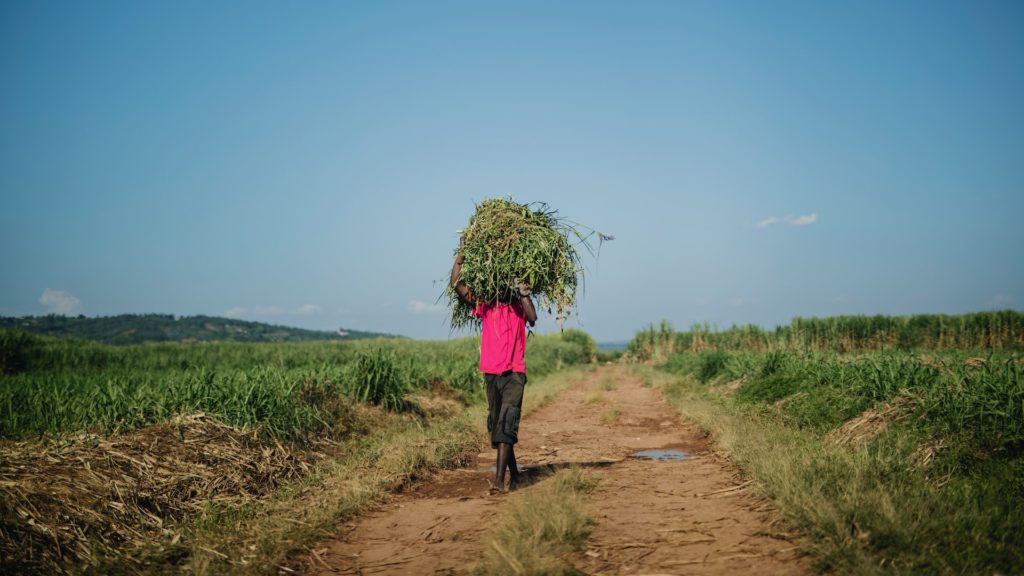Ineza Grace of Youth Coalition: Loss & Damage Finance must be on COP27 agenda

The Loss and Damage Youth Coalition is ramping up its call for finance to address loss and damage this year.
The coalition, founded in mid-2020, boasts more than 400 members, under 35 years old, from 41 countries around the world.
“[The coalition began] with the simple aim to state that youth, we are here, we are not to blame, but to work with our decision-makers and actors to catalyse concrete action on the ground to achieve climate justice,” said Ineza Grace, the Coalition’s Coordinator, from Rwanda.
Since the coalition began, the impacts of climate change on the most vulnerable countries have continued to increase. The Intergovernmental Panel on Climate Change’s Sixth Assessment Report finds that “human-induced climate change, including more frequent and intense extreme events, has caused widespread adverse impacts and related losses and damages to nature and people.”
Communities on the frontline
The Paris Agreement talks about the need for: ‘averting, minimising and addressing’ loss and damage (Article 8).
Averting and minimising losses and damages are what mitigating and adapting to climate change are all about. It is the third component – addressing loss and damage – which the Youth Coalition believes has been vastly neglected. In other words, what needs to happen when loss and damage has already occured? The coalition aims to shine a spotlight and urge transformative action:
“People are talking about finance, about adaptation and mitigation and nobody talks about loss and damage. We want to redraft the narrative to say that we need finance to address loss and damage, especially for the frontline communities that are vulnerable and did less to contribute to the climate change impact, to the climate change we are living right now.”
Ineza Grace, Youth Coalition Coordinator
A personal stake
Ms Ineza identifies herself as an eco-feminist and says she is motivated by the potential for positive impact. The time for empty words and fake promises is over and it’s action that counts – she says. Her impulse to address loss and damage is also personal.
At the age of 5 years, she experienced first-hand the effects of climate change when her family house was destroyed by intensive rainfall and wind, which turned her bedroom into a lake. Until today, women, youth and children are extremely vulnerable to flooding, erosion and intensive rainfall especially in the rural parts of Rwanda.
This experience jump-started Ms Ineza’s interest in environmental activism through designing home-grown solutions. It led to her having an opportunity to join the climate change negotiations as part of the Rwandan delegation from 2018.
Ms Ineza perceived that critical loss and damage issues were not being adequately confronted in the UNFCCC. She also considered that voices of young people and from the Global South are poorly represented in the negotiations process.
She co-founded the Youth Coalition on Loss and Damage with young people from the Global South and North. The Coalition has been growing its membership and crafting its advocacy, communications and storytelling and training efforts ever since. The coalition works closely with the Loss and Damage Collaboration, a group of experts on loss and damage who are on hand to provide advice and technical assistance when required.
Road to COP27 in Sharm El-Sheikh
The Youth Loss and Damage Coalition is now turning a laser focus to the forthcoming UNFCCC Conference of Parties, COP27, in Sharm El-Sheikh, Egypt in November. Ms Ineza and her colleagues want to see loss and damage on the formal agenda for the conference. Furthermore, they are calling for the new quantitative global climate finance goal under debate for the post-2025 period to contain a specific target for loss and damage finance. Critically, loss and damage “should not be left to the side”, she said.
“My message to the [most] polluting countries would be to understand that we are not joking when we say that climate change is the current reality, climate change is happening. History knows who did more to contribute to the greenhouse gas emissions and the reality shows who is vulnerable. It is really painful to see those who should be taking responsibility and ownership are shying away. We are common people, we have a common planet, and we are [in this] together. That will only be possible if climate change is addressed to its full scope – to meet the needs and the concerns of the frontline communities. Most of the time they are not even in the rooms where the big decisions are being made and their voices are not really being heard.”
“The message for the Least Developed Country and small island state leaders is to assure them that we are really standing with them. We know the frustration and we feel the pain. The young people, we understand and we want to stand on the right side of history. So we are sending courage, and you know that we are in this together at any cost.”
Interview by Pat Hinton with blog written by CASA’s Mairi Dupar. Image (top), Rwanda, credit Serrah Galos